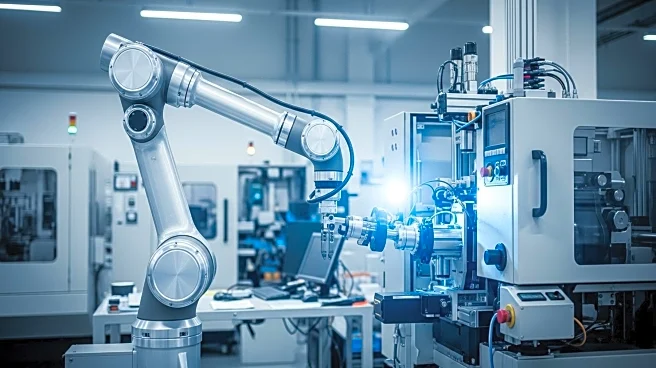What is the story about?
What's Happening?
IndustryWeek discusses the integration of artificial intelligence (AI) into lean transformation processes, emphasizing the importance of using AI as a supportive tool rather than a replacement for human capabilities. The article outlines a 90-day plan for incorporating AI into lean practices, focusing on problem-solving, quality assurance, and maintenance. AI is positioned as a digital coach that enhances the clarity and quality of decision-making processes, aids in mistake-proofing through real-time feedback, and supports predictive maintenance to improve equipment reliability. The approach encourages starting small with pilot projects and scaling up based on successful outcomes.
Why It's Important?
The integration of AI into lean transformation processes is significant for U.S. industries as it promises to enhance operational efficiency and quality control. By using AI to support human decision-making and problem-solving, companies can achieve more accurate and timely interventions, reducing waste and improving product quality. This approach aligns with the broader trend of digital transformation in manufacturing and other sectors, where AI is increasingly seen as a critical tool for maintaining competitiveness. Companies that successfully integrate AI into their lean practices may set new industry standards and gain a competitive edge.
What's Next?
As companies begin to implement AI in their lean transformation efforts, they are likely to encounter challenges related to change management and the need for continuous learning. Organizations will need to ensure that AI tools are used to complement, not replace, human expertise, maintaining a balance between technological advancement and human-centric processes. Future developments may include more sophisticated AI applications that further enhance lean methodologies, as well as industry-wide discussions on best practices for AI integration.
Beyond the Headlines
The ethical implications of AI in lean transformation include ensuring that AI tools are used responsibly and do not lead to job displacement without adequate retraining and upskilling opportunities. Additionally, there is a cultural dimension to consider, as organizations must foster an environment where AI is seen as a partner in continuous improvement rather than a threat to existing roles.
















